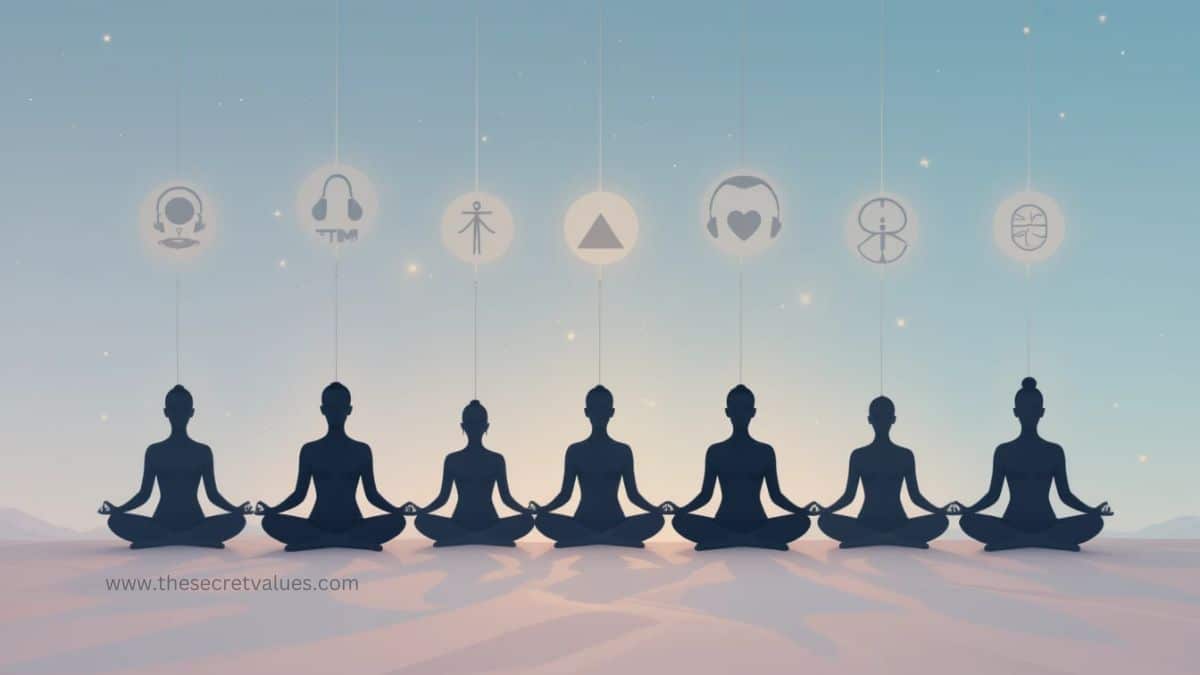Introduction
We all know how important a good night’s sleep is. But with our busy lives, getting a lot of work and the restful sleep we need can be challenging. That’s where meditation for deep sleep comes in.
Meditation for deep sleep can help you relax and quiet your mind, making falling and staying asleep easier. In this blog post, we’ll explore the benefits of meditation for deep sleep and give you some tips on how to get started.
- Understanding the Basics of Sleep
What is deep sleep?
Slow-wave sleep, another name for deep sleep, is the most vital sleep cycle phase. During this stage, your body repairs tissues strengthens the immune system and consolidates memories. You may feel groggy, unfocused, and irritable without adequate deep sleep.
Common sleep disorders and their effects
Sleep apnea and insomnia are two examples of sleep disorders that might disrupt this critical phase. Insomnia makes it difficult to either fall asleep or remain asleep., while sleep apnea involves repeated interruptions in breathing. Both conditions leave you feeling drained and unproductive.
- How Meditation Impacts Sleep
What is meditation?
The practice of meditation promotes awareness and relaxation. It originated thousands of years ago and has evolved into various forms, such as mindfulness, transcendental, and guided meditation.
The connection between meditation and sleep
Meditation works wonders for sleep by calming the mind and reducing stress levels. Studies show that it increases melatonin production—a hormone that regulates sleep—and lowers cortisol, the stress hormone.
- Benefits of Meditation Before Bedtime
Physical benefits
Meditation relaxes your body by lowering your heart rate and blood pressure. This creates the perfect pre-sleep state, helping your body transition into rest mode. Have you ever noticed how your shoulders drop after a deep breath? That’s your body saying thank you!
Mental benefits
Meditation clears your mind from the day’s chaos, reducing anxiety and quieting racing thoughts. It’s as if you’re refreshing your mind completely.
- Types of Meditation for Deep Sleep
Mindfulness meditation
This requires concentrating on the current moment without forming judgments. Try sitting quietly and paying attention to your breath—it is surprisingly calming!
Body scan meditation
This technique guides you to scan each body part, releasing tension mentally. It’s a fantastic way to relax from head to toe.
Guided meditation for sleep
Guided sessions use soothing voices and imagery to help you drift off. Many apps and online resources make this accessible for everyone.
- Techniques to Start Meditation Before Bedtime
Creating a bedtime routine
Set up a calm, dimly lit space and follow a consistent schedule. Your brain loves routines—it’s like setting a bedtime alarm for relaxation.
Breathing exercises to relax
Basic methods, like the 4-7-8 technique (breathe in for 4 seconds, pause for 7, exhale for 8), can work wonders in calming your nervous system.
- Overcoming Common Challenges
Difficulty staying focused
Stray thoughts? No problem. Gently guide your mind back to your breath or mantra whenever it wanders.
Finding time for meditation
Need more time? Even a brief five-minute meditation can have an impact. Sneak it into your bedtime routine—it’s better than doom-scrolling social media!
- Tools and Resources for Meditation
Popular apps for guided meditation
Apps like Calm, Headspace, and Insight Timer offer guided meditations tailored for sleep. Imagine having a meditation coach in your pocket!
Books on meditation and sleep
For more insights, check out “The Sleep Solution” by W. Chris Winter and “Meditation for Beginners” by Jack Kornfield.
Real-Life Success Stories
Case Studies:
Sarah, a corporate professional, struggled with insomnia for years. After adding meditation to her nightly routine, she now enjoys uninterrupted sleep and has more energy during the day.
Expert Opinions:
The Miracles of Meditation for Deep Sleep: Unlock a Healthier Life
Meditation for deep sleep and miracles are closely intertwined to enhance your overall wellness. Meditation helps you achieve restful sleep, reduces stress, and enhances mental clarity by calming the mind and relaxing the body. Explore how these easy habits can change both your nights and days!
Conclusion
Meditation for deep sleep is a powerful tool for getting the restful sleep you need. If you’re struggling with sleep, give meditation a try. You may be surprised at how much it can help.
Remember, consistency is critical. Try to meditate regularly, even if it’s just for a few minutes each day. With practice, you’ll find it easier to relax and fall asleep.
Sweet dreams!
FAQs
- How long should I meditate before bedtime?
- Try to get 10 to 20 minutes. Beginners can benefit from as little as five minutes.
- Can meditation cure insomnia?
- While it’s not a guaranteed cure, meditation significantly reduces symptoms of insomnia for many people.
- Do I need any special equipment to meditate?
- Not at all! A quiet space and a comfortable position are all you need.
- What’s the best time to meditate for sleep?
- Right before bedtime is ideal, but any time you feel stressed can help.
- Can children benefit from meditation for sleep?
- Absolutely! Many guided meditations are designed to help kids relax and sleep better.







